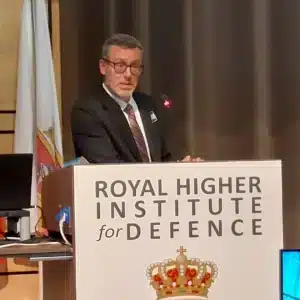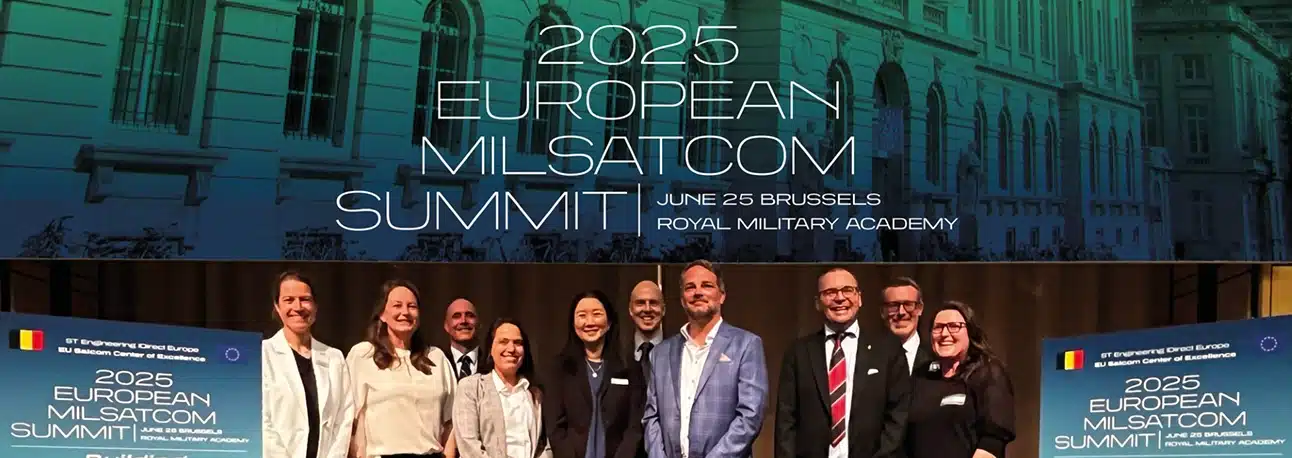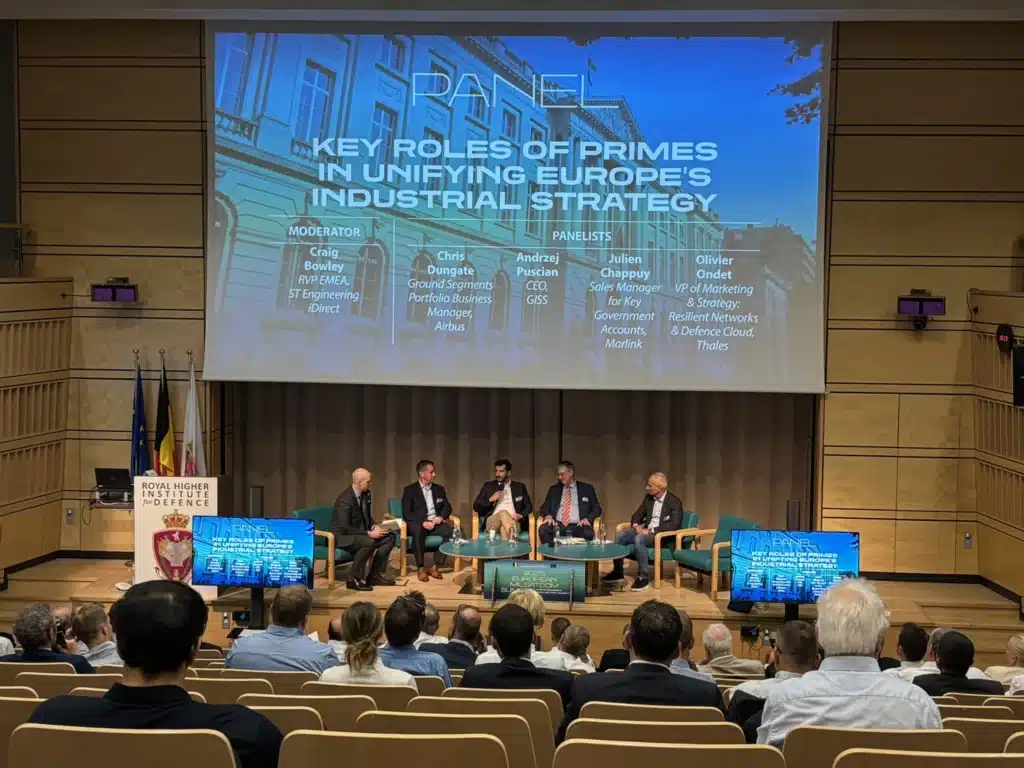By Keith Blanchet, Vice President of International Government and Defense
On June 25th, over 100 of Europe’s top satellite communications (satcom) leaders gathered at the historic Belgian Military Academy in Brussels for ST Engineering iDirect’s inaugural 2025 European MilSatCom Summit —a pivotal moment for the continent’s space and defense ecosystem. Revolving around the theme of Building Today for a Resilient Future, the message that resonated across every speech, panel, and hallway conversation was clear: Europe must be ready.

The summit’s focus was not merely on technology—it was about strategic posture, industrial cooperation, and the collective readiness to ensure Europe can supply, sustain, and defend itself in space and through space—while reducing strategic dependency and ensuring Europe can stand on its own.
A Summit Grounded in Purpose
This wasn’t a forum for abstract policy discussions or speculative future visions. This was a gathering built on urgency—to respond to a world that is becoming more contested, more unpredictable, and more demanding of real, deployable, and sovereign capabilities.
This was never about isolation—it was about readiness. Readiness to act with unity, resilience, and speed in an increasingly contested and unpredictable world.
Speakers and panelists alike emphasized that autonomous defence capabilities, especially in satcom and space-based assets, are no longer aspirational—they are essential pillars of deterrence and operational advantage. The consensus was that the more capable, cohesive, and confident Europe is in its own systems, the more effectively it can contribute to global stability—not through provocation, but through preparedness.
Strategic Sovereignty: An Industrial Imperative
A key takeaway echoed by both defence officials and industry leaders: sovereignty is both a strategic imperative and a catalyst for industrial growth.
With increasing support from EU institutions, initiatives like EPW and IRIS² are accelerating the move toward an integrated and autonomous European satcom infrastructure. This transition is opening the door for both legacy primes and emerging players to thrive in a framework that promotes security, transparency, and growth.
The alignment between strategic need and industrial opportunity has perhaps never been stronger.
Five Takeaways That Will Shape the Road Ahead
As the day came to a close, several key insights stood out—insights that will shape the future of European satcom strategy and capability development:
- Agility is everything
Satcom is foundational, but it’s not the finish line. The industry must build rapid-response capabilities that support what happens after the initial link is established—whether that’s data distribution, edge compute, or multi-domain integration. Speed matters. - Small + large = unstoppable
True innovation happens when legacy primes partner with agile startups, but this only works if acquisition processes are streamlined. Europe must be equipped to act at conflict speed. - Field needs drive innovation
Technology isn’t valuable unless it solves a real problem in the field. Standards and user-driven development accelerate the path to practical, deployable capabilities. - Vision meets urgency
Long-term programs must continue—but they must be paralleled by urgent-needs initiatives. Conflicts don’t wait. The ability to field capabilities quickly is as important as having a 10-year plan. - A stronger Europe through cooperation
Programs like EPW and IRIS² are building the foundation for cooperative resilience across member states, ensuring Europe can operate securely and effectively in complex theatres, with capabilities that are reliable, sovereign, and interoperable with trusted partners.
Unity, Camaraderie, and the Satcom Community
What stood out most in Brussels wasn’t just the level of technical expertise or the strategic clarity—it was the high level of senior engagement and the atmosphere of camaraderie. Despite the gravity of the topics discussed, the tone throughout the summit reflected a shared sense of purpose and trust.
There was an understanding that the satcom community—governments, industry, and institutions—must move together with purpose to meet the challenges ahead.
European strategic sovereignty means being prepared with unity, resilience, and agility to respond swiftly in a world where conflicts arise without warning.
As the summit concluded, one thing was clear: Europe is not just asking the important questions—it’s starting to build the answers together.
Thank you to all who participated in this milestone event: Airbus, Armed Forces of Ukraine, Belgian MOD, DG DEFIS, European Defence Agency, European Commission, Eutelsat, GISS, GovSat, Luxembourg Department of Defence, Marlink, Media Broadcast Satellite, Network Innovations, Polish MOD, Quadsat, Satcube, SES Space & Defence, Telesat, Thales, and Viasat.
Watch the highlights from the European Milsatcom Summit.

